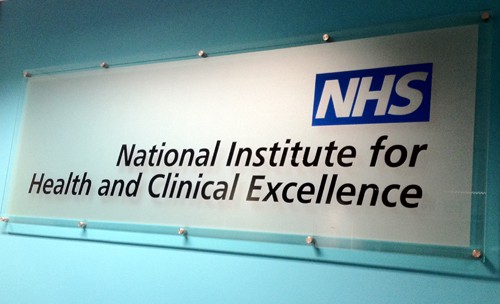
Experts and internationally recognised professionals have recommended that the National Institute of Health and Clinical Excellence (NICE) support a new study into its methods of how to value health-related quality of life.
The new valuation study is believed to be the ‘best way’ to resolve concerns about the way NICE measures and values health-related quality of life, which is a threshold used in the appraisal of new drugs. It coincides with many recent commitments made by NICE to review its methods of how it evaluates treatments.
NICE measures and values health-related quality of life by using the EQ-5D questionnaire, which is developed by EuroQol – a registered non-profit foundation. The questionnaire is compelted by members of the public to determine the benefits of certain treatments.
The answers to this questionnaire are converted into a number, which then helps to understand the public’s views on what aspects of health are most important. The conversion uses the results of a valuation study – known as a value set. The information from this is then used by NICE to make decisions about whether particular treatments are cost-effective.
There has only been one version of the EQ-5D questionnaire for many years – this being the EQ-5D-3L.
The last section of this questionnaire – the 3L – is the number of multiple-choice response options each question has. A newer questionnaire was recently created by the EuroQol Group, which has five multiple choice options. It was designed to produce more nuanced information about people’s views on health and hence improve the effectiveness of the data.
However, when researchers published an EQ-5D-5L value set for England, which interviewed around 1000 members of the public, independent quality assurance and reports from four independent experts raised concerns about the quality and reliability of the data collected in the valuation study, and the methods used to model these data.
According to NICE, these valuation studies are ‘technically difficult’, with the study for England being controversial. Following the concerns raised, NICE decided not to use the EQ-5D-5L value sets.
The three stakeholders – NICE, the Department of Health and Social Care and NHS England – have now agreed that a new EQ-5D-5L valuation study should be undertaken, and will advise on further work to be undertaken by EuroQol.
However, academic experts will make the significant methodological decisions when designing and conducting the new study. The data collection and analysis are expected to be completed by the middle of 2021.
The re-evaluation of this key aspect of the quality-adjusted life year (QALY) methodology comes on the heels of NICE’s upcoming review of its health technology evaluation methods.
The review, which was announced in July, will explore evaluation methods in support of the NHS’ goal of providing faster access to new technologies to more patients.
At that time, there was no mention of a review of the ‘QALY threshold’ – the fact that NICE is now considering changing aspects of its evaluation of quality of life will be welcome news for the pharma industry, which has long raised concerns about the effectiveness of its methods.
The wider review is part of a deal made between the UK government and the pharma industry.
The 2019 Voluntary Scheme for Branded Medicines Pricing and Access included a commitment from NICE to begin a review of its methods for its Technology Appraisal Programme, with industry and other stakeholders set to be active participants.




